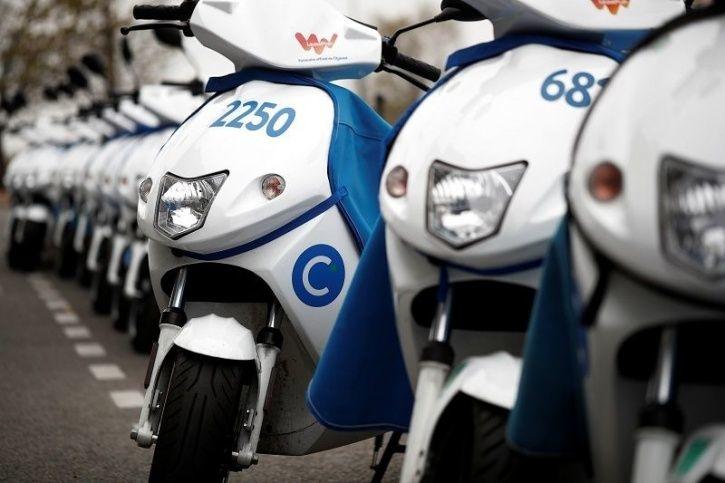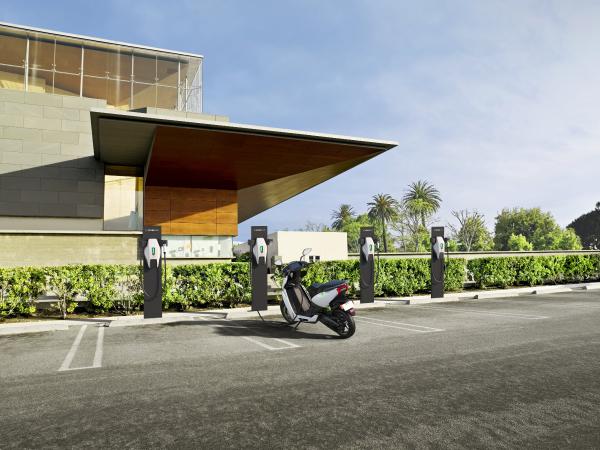Delhi Metro To Offer E-Scooters At Stations For Non-Emission Last Mile Connectivity
Anita - Jun 16, 2019

Delhi Metro Rail Corporation is embracing the advent of electric vehicles by bringing in electric scooters at five of its stations in the NCR region.
- Delhi Is The World’s Most Polluted Capital City For Three Years In A Row
- Indian Farmers Install High-Tech, Night-Vision CCTV Cameras To Protect Themselves
- Battery Bike: How Much Does The Battery Cost? What Type Is The Best?
Delhi Metro Rail Corporation (DMRC) is planning to bring e-scooters to 5 of its station located in the NCR region. This will contribute to the development of electric vehicles in India.

According to DMRC’s plan, e-scooters will be appointed, along with the current bicycle sharing services in order to empower last-mile connectivity options for metro users. DMRC aims to develop the services of bicycle sharing which are available at 19 stations at present. According to a report from ETAuto, e-scooters will be available in stations comprising of Nehru Enclave, Dwarka Sector 9, Durgabai Deshmukh South Campus and Mandi House.
In addition, it also aims to improve bicycle sharing system used at its current stations. Accordingly, the authority plans to set up a docking system that is wholly automated where people can unlock bicycles at the stands via QR codes. These codes will be created on mobile applications. In addition, users will need to provide an ID when they want to rent these e-scooters.

DMRC intends to offer rent free area for bicycle stands and charging stations for e-scooters right at the cycle stands as per the report. However, private operators will be in charge of these services.
Additionally, when using e-scooters, users will have to pay an amount of charge from Re 1/km. The total fee will base on the overall kilometers that users ride the vehicle, which is monitored via a built-in GPS.
The bigger agenda here is to offer eco-friendly selections for last mile connectivity. This will reduce the use of fossil-fuel-powered vehicles at present, leading to the decline in the total emission amount that each traveler releases when using these vehicles. Another benefit is to reduce traffic in a city, since two-wheel vehicles are expected to allow the traveler to go through small space that is occupied on the street.
Featured Stories

Features - Jan 29, 2026
Permanently Deleting Your Instagram Account: A Complete Step-by-Step Tutorial

Features - Jul 01, 2025
What Are The Fastest Passenger Vehicles Ever Created?

Features - Jun 25, 2025
Japan Hydrogen Breakthrough: Scientists Crack the Clean Energy Code with...

ICT News - Jun 25, 2025
AI Intimidation Tactics: CEOs Turn Flawed Technology Into Employee Fear Machine

Review - Jun 25, 2025
Windows 11 Problems: Is Microsoft's "Best" OS Actually Getting Worse?

Features - Jun 22, 2025
Telegram Founder Pavel Durov Plans to Split $14 Billion Fortune Among 106 Children

ICT News - Jun 22, 2025
Neuralink Telepathy Chip Enables Quadriplegic Rob Greiner to Control Games with...

Features - Jun 21, 2025
This Over $100 Bottle Has Nothing But Fresh Air Inside

Features - Jun 18, 2025
Best Mobile VPN Apps for Gaming 2025: Complete Guide

Features - Jun 18, 2025
A Math Formula Tells Us How Long Everything Will Live
Read more

ICT News- Feb 18, 2026
Google's Project Toscana: Elevating Pixel Face Unlock to Rival Apple's Face ID
As the smartphone landscape evolves, Google's push toward superior face unlock technology underscores its ambition to close the gap with Apple in user security and convenience.

ICT News- Feb 19, 2026
Escalating Costs for NVIDIA RTX 50 Series GPUs: RTX 5090 Tops $5,000, RTX 5060 Ti Closes in on RTX 5070 Pricing
As the RTX 50 series continues to push boundaries in gaming and AI, these price trends raise questions about accessibility for average gamers.

ICT News- Feb 20, 2026
Tech Leaders Question AI Agents' Value: Human Labor Remains More Affordable
In a recent episode of the All-In podcast, prominent tech investors and entrepreneurs expressed skepticism about the immediate practicality of deploying AI agents in business operations.
Comments
Sort by Newest | Popular